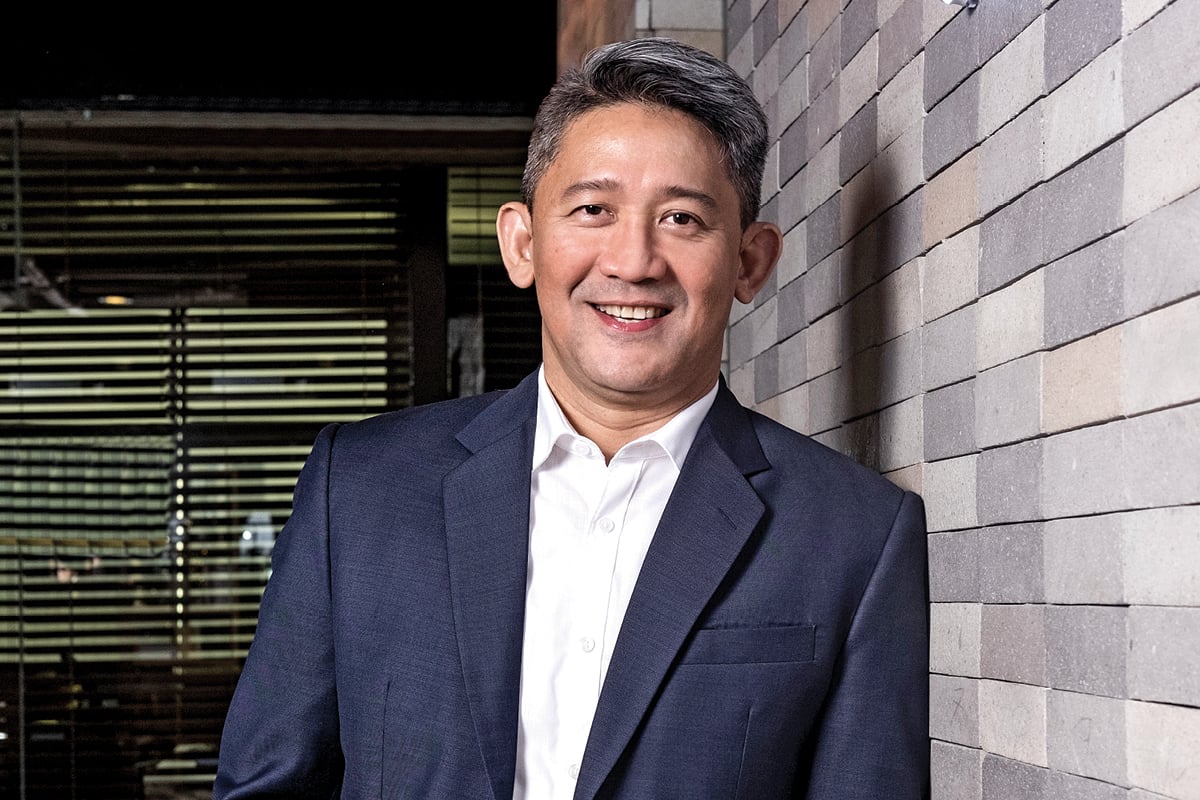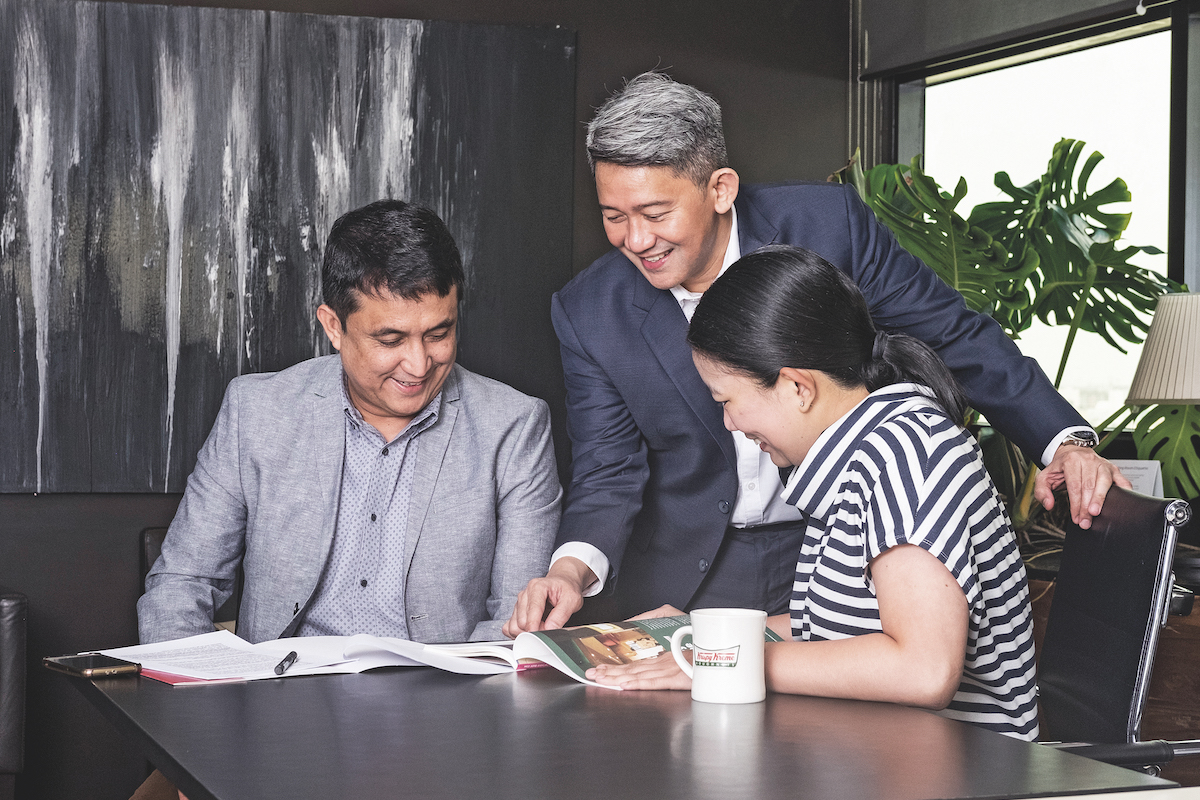The chicken came first: Ariel Fermin
Ariel Fermin is striking a balance between continuity and renewal at Max’s Group Inc.
Those American GIs really loved the fried chicken served in Max’s Restaurant back in 1945, and their enthusiasm for it turned that roadside cafe into a successful restaurant. Now, nearly 75 years later, it’s a Filipino institution.

Max’s Group Inc (MGI) is now the largest casual dining restaurant company in the Philippines, encompassing 13 well-known and loved brands such as Krispy Kreme, Pancake House, Yellow Cab Pizza Co, Teriyaki Boy, Jamba Juice, Sizzlin’ Steak, Max’s Corner Bakery and Max’s Kabisera.
As of the end of 2019, the MGI network included 763 stores, with 693 in the Philippines and 70 in overseas markets. Group COO Ariel Fermin loves his job at MGI for the freedom it offers to innovate and refresh those brands, while keeping in mind the traditions of each brand. His was a circuitous route to MGI, being a chemical engineer before diverting to food and beverages, and then retail.
"It’s been multinational companies for me for the greater part of my career – Procter & Gamble, Unilever, Coca-Cola and Nike – in product development, marketing and sales," he tells. "Nike recruited me as Country Director, so that was my first taste of retail, and it wasn’t a bad gig at all because I’m a sneaker head.
"But I wanted to give back to the Philippines, so I committed myself to nurturing local brands. That for me was a transition because in multinational companies the processes are set and systems are in place."
MGI now commands about a fifth of the casual dining industry, and Ariel is proud of what it’s accomplished in the past 10 years, "growing the business by six times". He’s excited about what’s in store for the near future, but is under no illusions about the road ahead.
"There are 17,000 one-store restaurants, and they don’t have the fixed costs we have," he points out. "They don’t have standards in food yet, and they’re as flexible as they can be – as they should be. They are our competitors – independents, we call them. We’re also close to 2,000 chain casual dining restaurants. They’ve always been there, and they have their practices already and they’re quite formidable. You have to give them respect."
Ariel’s management narrative rests on a delicate line between innovation and tradition. "It’s about balancing continuity and renewal," he says. "And it has a lot to do with sustainability. That reflects in the three platforms we have – a platform for people, the planet, of course, and profits."
The chemical engineer in Ariel appears in his problem-solving methodology. Whether it’s a single or multiple variable, he points out "there’s always an equation to solve X, Y and Z".

"That’s very much my approach in doing things and leading a group of people – being objective about it," Ariel explains. "You’re not always going to be chasing perfection. It’s seeking the right balance between being a catalyst for innovation and retaining enough continuity to make them all part of a coherent family, because the narrative has to be consistent. There has to be strategic clarity on what we want to do with the brands we have. Having 13 brands is both a blessing and a curse if you don’t use them smartly."
"What makes the success we now enjoy sustainable is the people. And that isn’t just lip service."
Ariel understood that MGI’s roster of brands spanned diverse consumer spaces, each with unique inherent strengths. The key was to maintain and extend relevance within each of these. The first step was in aligning and integrating the pipes on such core systems as supply chain and logistics. Equally vital were investments in such next-level strategic capabilities as analytics and restaurant systems.
Despite the sprawling nature of the group, there is genuine cohesion in its community of employees and franchisees. There is a common purpose, according to Ariel. "The culture we have is something I’m super proud of," he enthuses.
"I want to blend in because the Trota and Fuentebella families have built this company even before I came in. So I give them much respect. I give the owners much respect. I’m fortunate to be working with a special group of people who genuinely care for the company, who really know their craft and, quite frankly, who genuinely care for each other too. I think that’s the beauty of being founded by family, because that’s certainly one of the values we hold dear."
Cultural fit is top of mind for Ariel and MGI when screening potential franchisees and employees. The reputation of the whole group rides on each frontline manager and employee staying true to the company’s ethos.
"We hold our values dearly, and that’s something we all share."
"What makes the success we now enjoy sustainable is the people. And that isn’t just lip service," says Ariel. "That includes employees and our franchisees. The face of our brand is how the franchisees operate their respective stores.
"Franchise and network development is one of those strategic capabilities. We’re very mindful in screening our potential franchisees, making sure that they have a good standing in the community. We hold our values dearly, and that’s something we all share."
Proudly supported by: